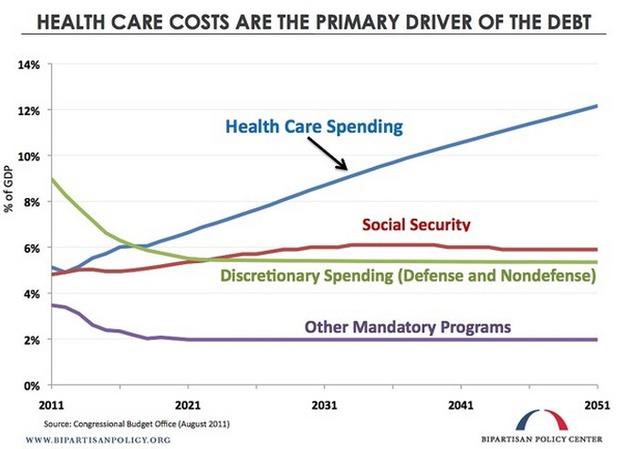State of the union: To spend or not to spend?
(MoneyWatch) Let's review the state of the U.S. economy. It is growing, but slowly -- most economists expect it expand by only 2-2.5 percent this year. Job-creation is fair, but below what's required to quickly reduce unemployment. More positively, auto sales and housing have perked up, while corporate profits are, if not through the roof, then at least solidly in the attic. The Federal Reserve also remains committed to low interest rates, helping to propel the ongoing bull market in stocks.
Could things be better? Certainly many economists -- and not only those in Paul Krugman's camp or other Keynesian fellow travelers -- think the nation's growth prospects would be stronger if the government was preparing to boost spending rather than to gut it on March 1 as part of a mandated budget "sequestration." But with so many politicians focused on the nation's debt, it seems unlikely that any new spending will make it through the congressional sausage factory.
That's why any references to a renewed focus on job-creation or infrastructure spending should be taken with an industrial-sized grain of salt when President Obama delivers his State of the Union address Tuesday. With the Pentagon scheduled to cut 800,000 civilian workers' hours by 20 percent and the Department of Homeland Security set to reduce its number of border agents by a quarter, along with other planned discretionary spending cuts, a new major round of stimulus isn't in the cards.
Despite past jawboning about spending initiatives to help boost the economy, the reality is that in the past two years the government has shrunk substantially. That has created a drag on both job and overall economic growth. Why? Because when private-sector economic demand remains subdued, public outlays put money in people's pockets -- money that in turn is used to foster the kind of consumer spending that makes up roughly 70 percent of economic activity in the U.S.
So while we can pat ourselves on the back for reducing the federal deficit this year to $845 billion, from $1.1 trillion last year, we have done so by shortchanging growth.
According to the Center for American Progress, a liberal think-tank, "within 10 years, non-defense discretionary funding will be about 14 percent lower than its lowest point in the past 50 years -- even before taking into account the effects of the large automatic spending cuts scheduled to begin in March 2013." Although some think that will ultimately benefit the economy, such cuts don't address the biggest driver of the nation's current and future debts: health care costs.
Besides, in household-spending terms many of the planned federal cuts are akin to skipping that overpriced daily latte instead of exiting an adjustable rate jumbo mortgage just as interest rates are about to soar.
So as Congress and the President battle in the months ahead, feel free to ignore the rhetorical noise until they start talking about how to rein in health care costs -- not only in Medicare and Medicaid, which tend to operate more efficiently than private medical plans -- but across the health care industry at large.
This week, investors will look to retail sales and consumer sentiment to get a read on personal consumption. Although consumer spending remained strong toward the end of last year, it was partially driven by a one-off rise in real disposable income, as companies accelerated payments to beat impending fiscal cliff tax changes. That momentum will shift, due in part to the January 1 expiration of the 2 percent payroll tax reduction.
-- DJIA: 13,993 down 0.1 percent on week, up 6.8 percent on year
-- S&P 500: 1,517, up 0.3 percent on week, up 6.4 percent on year
-- NASDAQ: 3,193, up 0.4 percent on week, up 5.8 percen on year
-- March Crude Oil: $95.72
-- April Gold: $1,666.90
-- AAA nat'l average price for gallon of regular gas: $3.56
THE WEEK AHEAD:
Monday 2/11:
Eurozone finance ministers meet
10 a.m. Factory orders
Tuesday 2/12:
7:30 a.m. NFIB small business optimism
9 p.m. State of the Union address
Wednesday 2/13:
Whole Foods Market, Cisco Systems earnings
8:30 a.m. Retail sales
8:30 a.m. Import and export prices
10 a.m. Business Inventories
Thursday 2/14:
CBS, PepsiCo, Waste Management earnings
G-20 finance ministers and central bank governors' deputies meet in Moscow (through February 16)
8:30 a.m. Weekly claims
Friday 2/15:
8:30 a.m. Empire State manufacturing survey
9:15 a.m. Industrial production
9:55 a.m. Consumer sentiment
